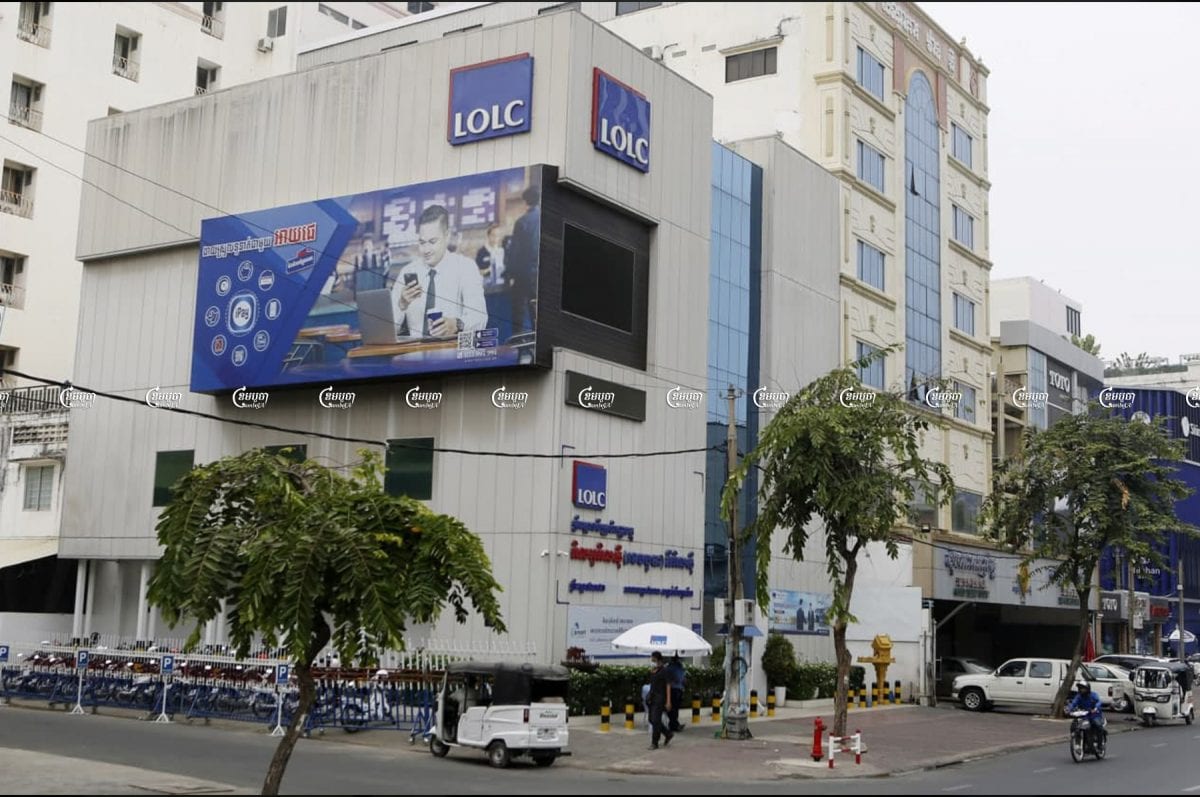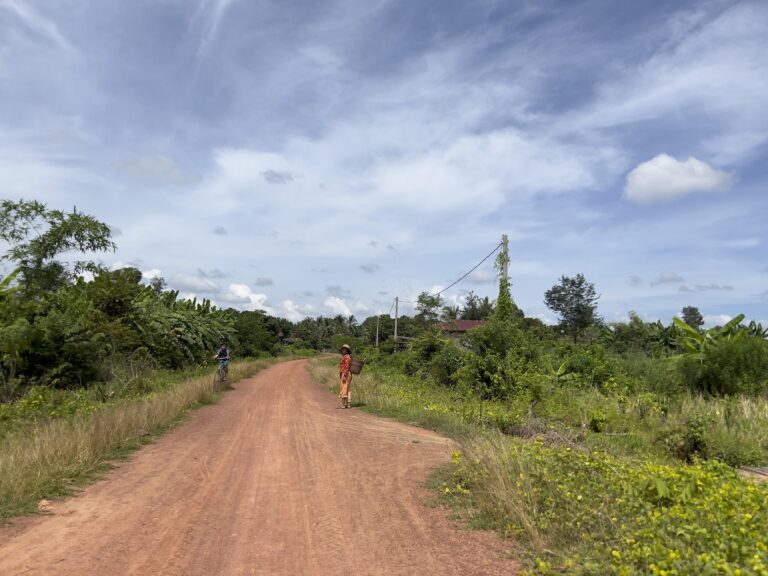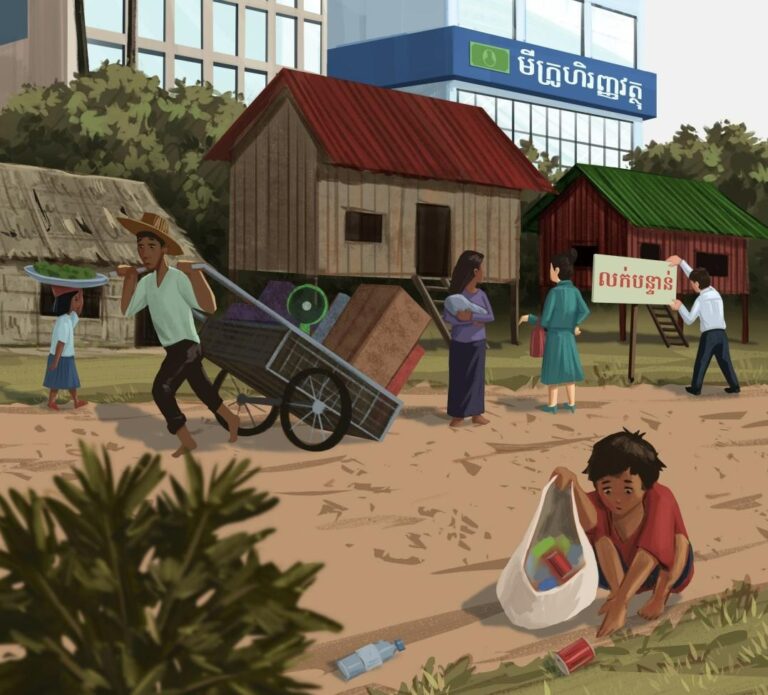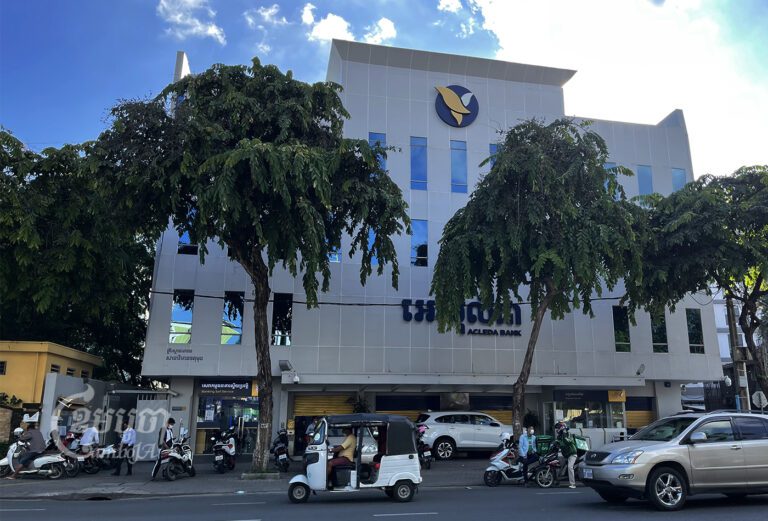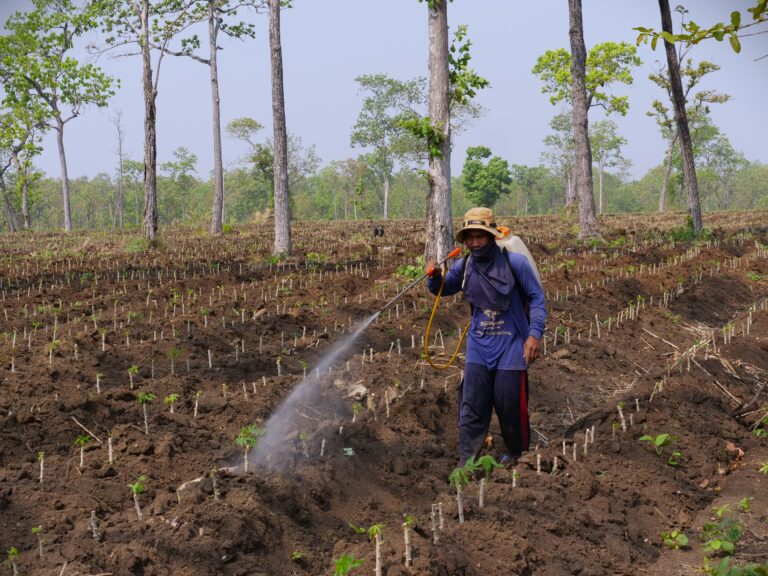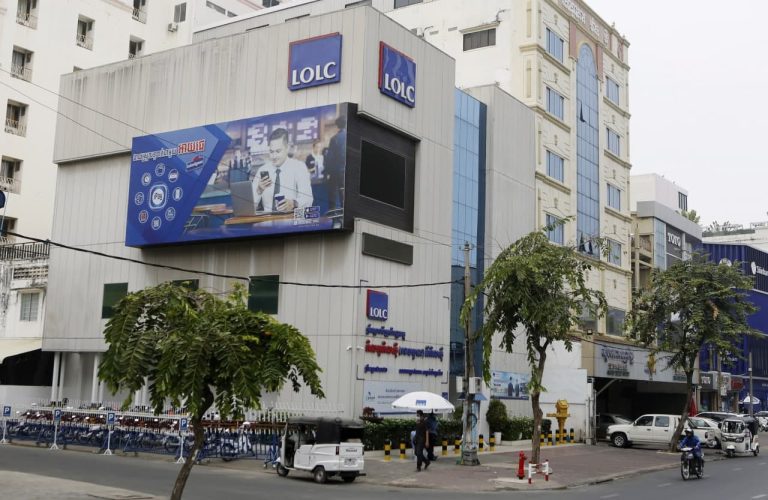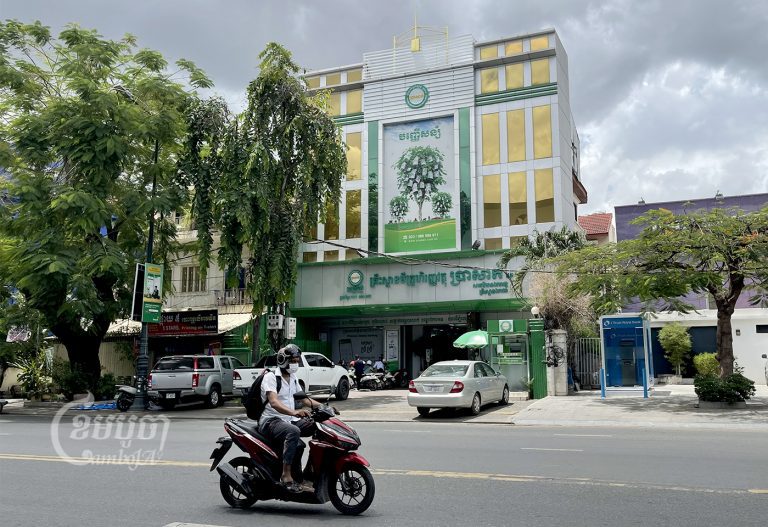As rights groups publish new evidence on the severity of Cambodia’s personal debt risks, communities affected by land disputes are calling for relief from what they say are overwhelming levels of microloan debt.
Phav Nherng, 46, is living out a case study of the effects of such debt. A resident of the Chi Khor Kroam community of Koh Kong province, Nherng had in January 2019 borrowed $5,000 from a microfinance institution (MFI) to build a new house in the province’s Sre Ambel district.
Nherng depended on her grown children to help her repay the loan but eventually found it too much to cover on their own.
“They did not give us an exemption. If I paid a few days late, they would warn me,” she said. “They did not understand us, they did not care where and how we got money.”
With this pressure, Nherng decided to borrow $8,000 from relatives in January 2021 to pay off the loan.
“My children have to work hard to pay every month but since Covid-19 they have a lot of challenges,” she said. “I do not have food to eat because I need to save money to pay the loan.”
Debt isn’t the only stressor Nherng’s community has faced in recent decades. been affected by a long-running dispute with Koh Kong Sugar, a company linked to the powerful tycoon and CPP Senator Ly Yong Phat that moved into the area in 2006, clearing farms and homes of people in Chi Khor Kroam.
The resulting disputes are just part of the research included in the latest joint report from rights groups Licadho and Equitable Cambodia linking the issues of debt and land conflict. Researchers from the civil society organizations investigated 14 communities in eight provinces across Cambodia, including Chi Khor Kroam.
The findings, published in a document titled “Right to Relief”, show the lives of residents in these communities have been disrupted for years due to the intertwined nature of land disputes and over-indebtedness.
In Chi Khor Kroam, the researchers found, the loss of land led to a dramatic drop in incomes, as well as other socially taxing consequences such as children being pulled out of school and increased levels of domestic violence and lasting psychological effects.
After deciding to advocate as a community in 2007, the residents of Chi Khor Kroam continuously campaigned and protested for a decade until the company agreed to provide $2,500 per household. In 2018, Koh Kong Sugar granted 3 hectares of land to affected households, including that of Phav Nherng.
The “Relief” investigators found people usually borrow money to repay other debts, or to fund healthcare, agriculture or a child’s education. People also take loans for more economic reasons such as buying land, motorbikes and conducting business.
According to the report, Cambodians hold more than $11.8 billion in microloans from both MFIs and banks. The majority of these loans are collateralized with borrowers’ land titles, posing a risk to borrowers’ land tenure security.
By the end of 2020 the average microloan in Cambodia was for about $4,280, the most in the world for this kind of loan, according to the study.
“The country’s banks and MFIs have enjoyed record profits during the COVID-19 pandemic, even as hundreds of thousands of borrowers have lost incomes and communities have struggled to survive,” stated the report.
The researchers also heard that microfinance institutions cooperate with local authorities – most commonly village and commune chiefs – in order to both offer loans and ensure repayments.
In eight of the 14 communities studied, local authorities were involved in pressuring borrowers to repay microloans, including four communities where land sales were directly pressured by government officials.
Kaing Tongngy, a spokesperson for the industry group Cambodia Microfinance Association, said the latest report on microloans did not come as a surprise. The association has rejected past research findings from Licadho as unfounded.
“This report is not different from the previous finding, nothing new, which just conducts a small part of studying,” he said.
Tongngy said MFIs have 2 million customers, 60 percent of whom borrow roughly $3,000 or less.
“We know that during this time, our customers have been affected by COVID-19, and we focus on the most affected customers,” he said. “We provided loan restructuring for more than 350,000 customers as of mid-June. This mechanism is useful to help our customers, we’ll help them as much as we possibly can.”
Sok Voeun, CEO of microfinance lender LOLC, dismissed the findings of the study and alleged the report to be politically motivated. He said in the context of COVID-19, lenders do not practice extortion or coercion but rather try to resolve issues with understanding.
“What is mentioned in this report is just to show political character, because their report is trying to get the sector in trouble,” he said. “We do not know what is behind this.”
Voeun said MFI staff comply with a code of conduct and will be punished if found to force customers to sell property or borrow money from others to pay off debts.
“We will fire those staff if they are guilty, because this is a sensitive issue for MFIs,” he said.
Last year, the National Bank of Cambodia issued a directive to all banks and financial institutions to restructure loans in order to maintain financial stability, support economic activity and ease the burden of debtors facing major revenue declines who may find it difficult to repay loans during the ongoing COVID-19 outbreak.
That includes individuals such as Chan Yoeut, 56, from Battambang province’s Bavel district. He borrowed $10,000 to buy land for agriculture in 2018, but since the onset of COVID-19, Yoeut has struggled to repay his loans.
“I have to repay $300 per month, our family situation has been affected by COVID and I already sold my cows and land to settle the debt and I may sell other property as well,” he said.
In April, 103 non-governmental organizations, farmer communities, associations and worker unions publicly called on the government to direct financial institutions to suspend all loan repayments and interest accrual for at least three months, saying that loan restructure is not enough.
The latest report from Licadho and Equitable Cambodia ultimately calls for the return of all land titles currently held as collateral for microloans, as well as independent investigations into the scale of human rights abuses caused by such loans in Cambodia. The report authors also urge debt relief and proper compensation for borrowers who suffered human rights abuses as the result of predatory lending, lower interest rates on microloans and more flexible restructuring options for distressed borrowers, including temporary suspension of principal and interest accrual.
The rights groups added that international development agencies have proposed hundreds of millions of dollars of new funding to MFIs in Cambodia during the pandemic. This, the groups warned, could push people further into debt without adequate protection for borrowers. (Additional reporting by Sam Sopich)


